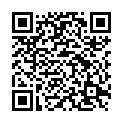|
|
|
| Module code: MBG21-8 |
|
|
2U+3S (5 hours per week) |
|
6 |
| Semester: 2 |
| Mandatory course: yes |
Language of instruction:
German |
Assessment:
Exam achievement
[updated 15.11.2021]
|
MBG21-8 (P311-0174) Management and Professional Pedagogy in Health Care, Bachelor, ASPO 01.10.2021
, semester 2, mandatory course
|
75 class hours (= 56.25 clock hours) over a 15-week period.
The total student study time is 180 hours (equivalent to 6 ECTS credits).
There are therefore 123.75 hours available for class preparation and follow-up work and exam preparation.
|
Recommended prerequisites (modules):
MBG21-1 Academic Methodologies and Study Skills I
[updated 12.10.2023]
|
Recommended as prerequisite for:
MBG21-11 Healthcare Management II
MBG21-14 Vocational Pedagogy in Health Care III
MBG21-18 Vocational Pedagogy in Health Care IV
MBG21.B.51 Advanced Didactics and Methodology
MBG21.B.52 Developing a Curriculum
MBG21.B.53 Measuring and Assessing Competence
MBG21.B.54 Educational Guidance in (Vocational) Adult Education
[updated 04.12.2025]
|
Module coordinator:
Prof. Dr. Dagmar Renaud |
Lecturer:
Prof. Dr. Dagmar Renaud
Dr. Sindy Lautenschläger
[updated 12.10.2023]
|
Learning outcomes:
Theories on groups and group processes
After successfully completing this module, students will have the following skills and competencies:
.
Knowledge and Comprehension:
Students will be able to define basic terms on the subject.
They will be able to describe basic principles of group dynamics.
They will be able to describe theories and models pertaining to groups, group processes, and the relationship between individuals and groups.
They will be able to recognize processes and constellations in groups and identify problematic group situations.
They will be able to recognize problematic group situations and be familiar with intervention possibilities.
The Use, Application, and Generation of Knowledge:
Based on their knowledge, students will be able to develop solutions in problematic group situations and select suitable forms of intervention.
Communication and Cooperation:
Students will be able to contribute constructively to the group learning process.
They will demonstrate tolerance for other viewpoints and perspectives.
Scientific Self-Concept/Professionalism:
Students will be able to reflect on themselves in different roles and group-related fields of action.
They will be able to reflect on their own behavioral patterns in groups.
Group dynamics training
After successfully completing this module, students will have the following skills and competencies:
Knowledge and Comprehension:
Students will be able to describe different group dynamic approaches to working with groups (systemic approaches, theme-centered interaction).
They will be familiar with the methods used in group dynamic processes.
They will be able to recognize the effects of group dynamic processes.
The Use, Application, and Generation of Knowledge:
Students will be able to choose the group dynamic approaches and methods appropriate to the context.
They will be able to plan and prepare work with groups.
They will be able to lead group dynamic processes constructively in terms of actions and reflection.
Communication and Cooperation:
They will be able to reflect on the concepts of self-perception and the perception of others in group dynamic processes.
They will be able to formulate their own needs and feelings in interaction with others.
Scientific Self-Concept/Professionalism:
Students will be able to reflect on their own behavior in the group.
[updated 15.11.2021]
|
Module content:
Theories on groups and group processes
1. Basic concepts (individual, group, group dynamics)
2. Basic principles of group dynamics
3. Group dynamics theories, models and concepts
4. Group learning process
5. Working methods in groups
6. Performance in groups
7. Inter- and intra-group conflicts
8. Inter- and intra-group conflicts Training forms (TCI, skill training, systemic principles and methods in group processes ...)
9. Power and social influence in groups
Group dynamics training
1. Clarifying the task
2. Preparing for group work
3. Managing learn and work groups
4. Process design
5. Applying TCI methods, as well as systemic methods in exercises
6. Crises and critical situations in the context of group work
7. Self-perception and external perception
Exercises for self-awareness
[updated 15.11.2021]
|
Teaching methods/Media:
Blended learning
[updated 15.11.2021]
|
Recommended or required reading:
Recommended literature will be announced at the beginning of the course.
[updated 15.11.2021]
|

